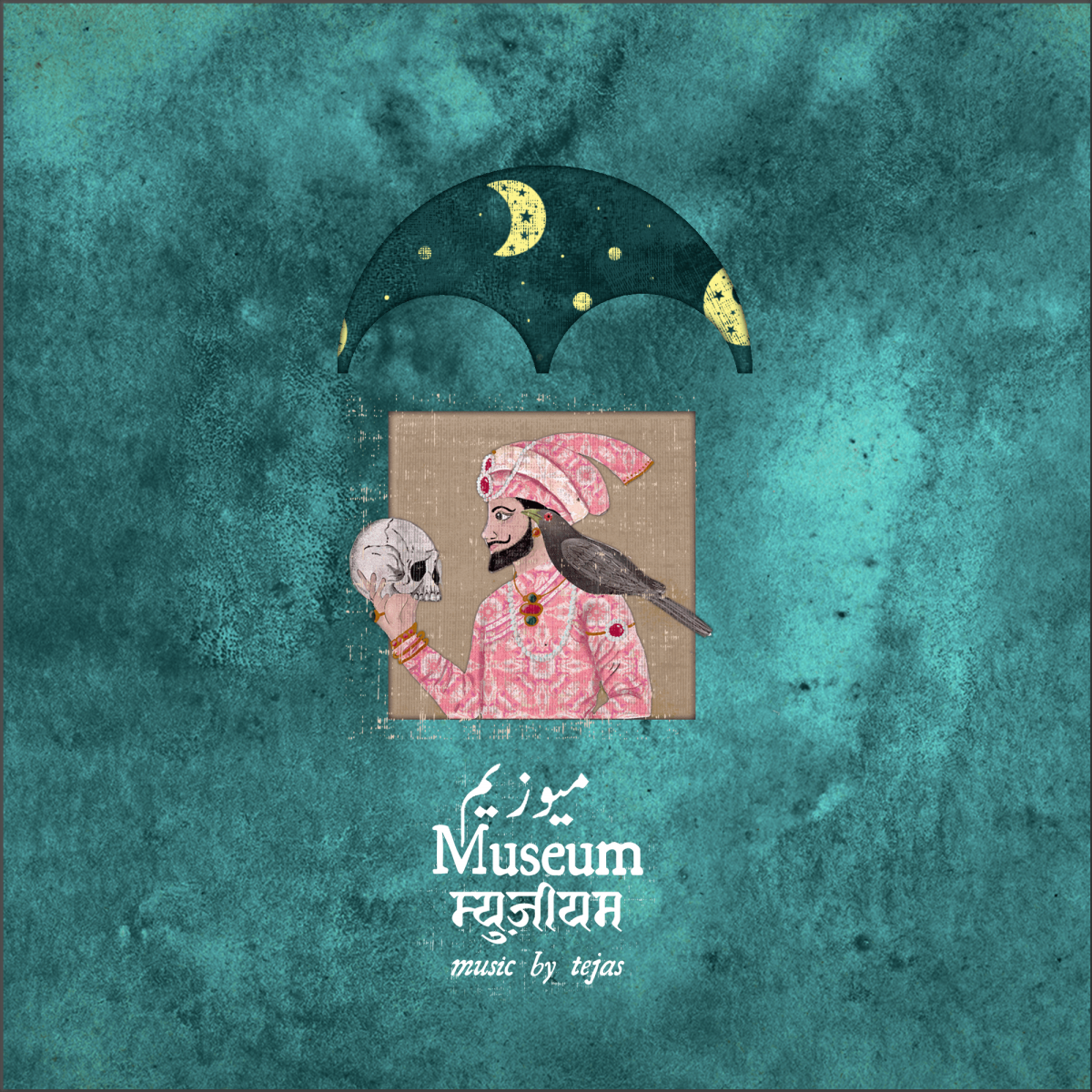

Last month, Mumbai singer-songwriter-guitarist Tejas Menon released an EP called ‘Museum’. This is a review of that EP, which is a bit risky because it’s essentially an artist taking a close personal look at their life, their family, and themselves. To be honest, if this wasn’t presented as music that has been released on streaming platforms by an indie artist (and therefore technically meant for consumption by the listening public), it wouldn’t be a release we’d dive into and try to contextualize. But it is presented as such, so here goes.
Oh, and it’s pretty good. That’s another reason.
This EP has four songs on it; about eleven minutes of music in total. There’s never been any doubt as to production quality on Tejas releases, and this one is no different. It involves longtime collaborators Jehangir Jehangir and Adil Kurwa, who’ve been working together for a long, long time now, and this actually shows. There is something tangible when musicians on a project have chemistry that’s been developed over time, which you can clearly hear here. However, the arrangements on here are markedly different from things like Tejas’s last full-length album ‘Outlast’ and prior, mostly in that there’s some Indian instrumentation involved. It’s an interesting approach for music that speaks about heritage, belonging and subjects of that nature; it also goes well with the style of pop music he generally makes. This shows in the songs.
There’s an atmospheric intro called ‘Exspiravit In Machina’ which lasts less than a minute and leads us into the title track that follows. What’s really interesting is how self-awareness and understanding one’s history (essentially relatively heavy topics) are woven into full-on pop songs, complete with refrains, earworm-y hooks and eminently dance-able grooves. It’s not something you expect to hear, perhaps due to the modern separation of most Western popular music between thoughtful and instantly gratifying. These days, we are encouraged at times to either enjoy ourselves or think, but Tejas seems to be able to make something that does both.

Take ‘The Clock’ for example, a synth-led arena ballad with four-on-the-floor kicks (that then become a driving drum part) and the most sing-able chorus you’ll find this side of a chart. But it’s also another reflection on time and its passage. This track is excellent. Even the EP’s last tune ‘Read Your Mind’, a densely layered maze of samples, vocals both raw and with effects, heaven knows how many kinds of synth, has a point to it. It’s two minutes long and is meant to serve the purpose of being a general outro, but it gets so much done.
‘Museum’ has deliberation plastered all over it. Tejas produced most of what you hear himself before taking it to his team and adding more parts or accentuating bits that were already formed. There’s no guitars anywhere, and that’s on purpose. The sequencing of the four songs is very specific to result in a particular flow, so much so that Tejas says he and his band are playing the entire EP in sequence at their gigs (he’s currently performing around the country, so you can catch him at your city soon); his view of it is that there are loads of other songs in his setlist, but the EP occupies this little ‘chapter’ of the performance as a sort of show-within-a-show. It’s this kind of attention to detail that makes EPs like this such a fun listening experience, and hell, there’s also some thought-provoking lyrical material to dig into. So, yes; even though it’s not the longest listening experience, ‘Museum’ is a success on all fronts. Which is not a surprise at all, of course.
Previous Article Abhinav Srikant Lets His Creativity Fly On His EP 'Antifragile' Abhinav Srikant Lets His Creativity Fly On His EP 'Antifragile'
|
Next Article On Her EP 'In My Asymmetry', Frizzell D'Souza Levels Up On Her EP 'In My Asymmetry', Frizzell D'Souza Levels Up
|
The main thing to note about this release is its compositional freedom
Indie goodness!





Leave a comment